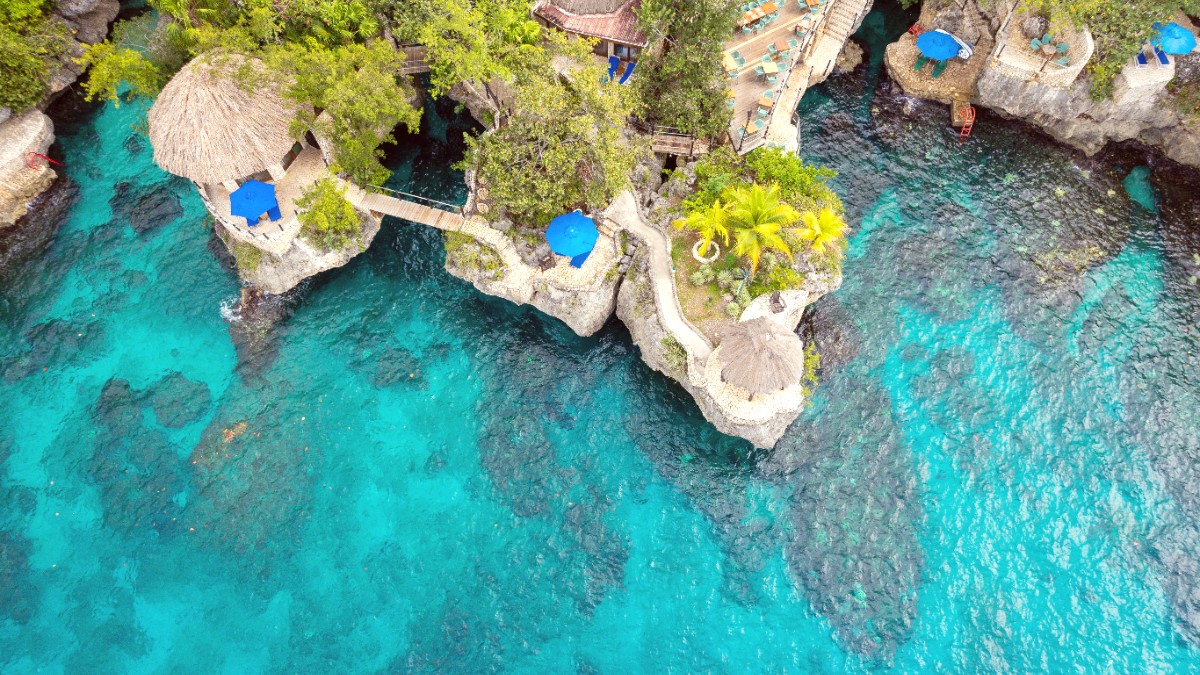
Negril And The West, Jamaica
Temperatures: Average daily temperatures hover between 27°C and 32°C (80°F to 90°F). Evenings remain warm, rarely dropping below 21°C (70°F).
Precipitation: Negril experiences two main rainy seasons. These occur from May to June and again from September to November. During these months, rain typically arrives as short, heavy afternoon showers. All-day rain is uncommon. Humidity: Humidity levels stay high all year, often between 70% and 85%.
Hurricane season officially spans from June 1 to November 30. Peak activity usually occurs from August to October. Direct hits on Jamaica are rare, but tropical storms may bring heavy rain and strong winds.
Travelers visiting during this period may consider travel insurance that covers weather-related disruptions. Negril does not experience monsoons or extreme temperature fluctuations beyond typical tropical variations.
December to April
Dry, sunny weather, lower humidity, atmosphere.
Higher prices for flights and accommodation, crowded attractions, advance booking suggested.
May to June, November
Lower prices than high season, fewer crowds, good weather with occasional showers, lush landscapes.
Increased chance of rain, some businesses operate on reduced hours.
July to August, September to October
Lowest prices, fewest crowds, ideal for budget travelers, very hot.
Higher chance of rain and hurricanes, some resorts or tours close for maintenance.
Beach & Water Activities: December to April features calmest seas and clearest underwater visibility.
Exploration & Hiking: December to April features drier trails and comfortable temperatures for walking.
Travel just before or after the peak season for better deals.
Expect distinguished savings on accommodation and activities.
A more tranquil experience without peak season crowds.
Enjoy Negril's beauty without peak season costs.
More availability and flexibility for bookings.
Plan your entry to Jamaica by understanding the required documents. Different nationalities have varying visa requirements.
Most major nationalities do not need a visa for tourist stays up to 90 days. A valid passport is needed.
Travelers from certain countries may need a visa. Check official Jamaican government websites for details.
Plan your budget to match your travel style in Negril. Costs vary significantly depending on your accommodation, dining, and activity choices.
Personal health and safety merit attention for a pleasant journey.
Tourist areas like Negril are generally safer due to increased police presence. Petty theft (pickpocketing, bag snatching) can happen.
Do not openly display valuables. Use hotel safes for passports, cash, and jewelry.
Be aware of your surroundings. Avoid isolated areas, especially after dark.
Do not resist if robbed; personal safety is main.
Travel insurance is suggested.
It covers medical emergencies, emergency evacuation, trip cancellation or interruption, lost luggage, and personal liability.
Look for policies that cover adventure activities if you plan to participate in them. Consider purchasing comprehensive travel insurance from providers like SafetyWing or Insubuy.
Insurance protects your investment and health.
Dial 119.
Dial 110.
Keep contact details for your country's embassy or consulate in Kingston, Jamaica.
Jamaica sits in an active seismic zone. While major earthquakes are rare, minor tremors can occur.
Be aware of your surroundings and make informed choices to keep your trip safe and enjoyable.
Avoid walking alone at night on secluded beaches or poorly lit roads.
Be wary of unsolicited offers or aggressive vendors.
Keep track of your personal items, especially in crowded areas.